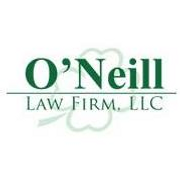A Bankruptcy Attorney Explains Chapter 7 & Chapter 13 Bankruptcy

When faced with crippling debt, it's easy to lose sight of the options available to you; two of the most helpful are Chapter 7 and Chapter 13 bankruptcy. As the two kinds of bankruptcy most frequently filed by individuals, Chapters 7 and 13 are different from one another and each offers some unique benefits. Sean O'Neill of the O'Neill Law Firm, LLC, is a bankruptcy attorney serving the La Crosse, WI, area.
Below, he shares some key differences between Chapter 7 and Chapter 13 bankruptcy.
Chapter 7 Bankruptcy
Those who file for Chapter 7 bankruptcy have most of their unsecured debt eliminated. Credit cards, back-rent, medical bills, and utility bills are all types of unsecured debt that can be wiped away with a Chapter 7 filing. Chapter 7 is ideal for people who are on a strict or limited budget and have little or no money left over after paying their monthly bills.
Chapter 13 Bankruptcy
 Chapter 13 bankruptcy is more of a repayment plan than a means of debt elimination. All of your existing debt is restructured (and possibly reduced) into a monthly payment plan that is more manageable for your financial situation.
Chapter 13 bankruptcy is more of a repayment plan than a means of debt elimination. All of your existing debt is restructured (and possibly reduced) into a monthly payment plan that is more manageable for your financial situation.
Most Chapter 13 bankruptcy involve a three- to five-year repayment process. Unlike Chapter 7, it will not wipe away your debts, but it will give you an opportunity to remain in stronger standing with your creditors. Chapter 13 is better suited for filers who have money left over at the end of each month that they can put toward repaying their debts.
If you're considering one of these options, trust bankruptcy attorney Sean O'Neill of the O'Neill Law Firm, LLC, to give you the exceptional legal counsel you need. Call (608) 519-3551 or visit him on Facebook for more information. Bankruptcy can offer a chance to rebuild your financial life; call a bankruptcy attorney today to see if it's the right path for you.
About the Business
Have a question? Ask the experts!
Send your question

